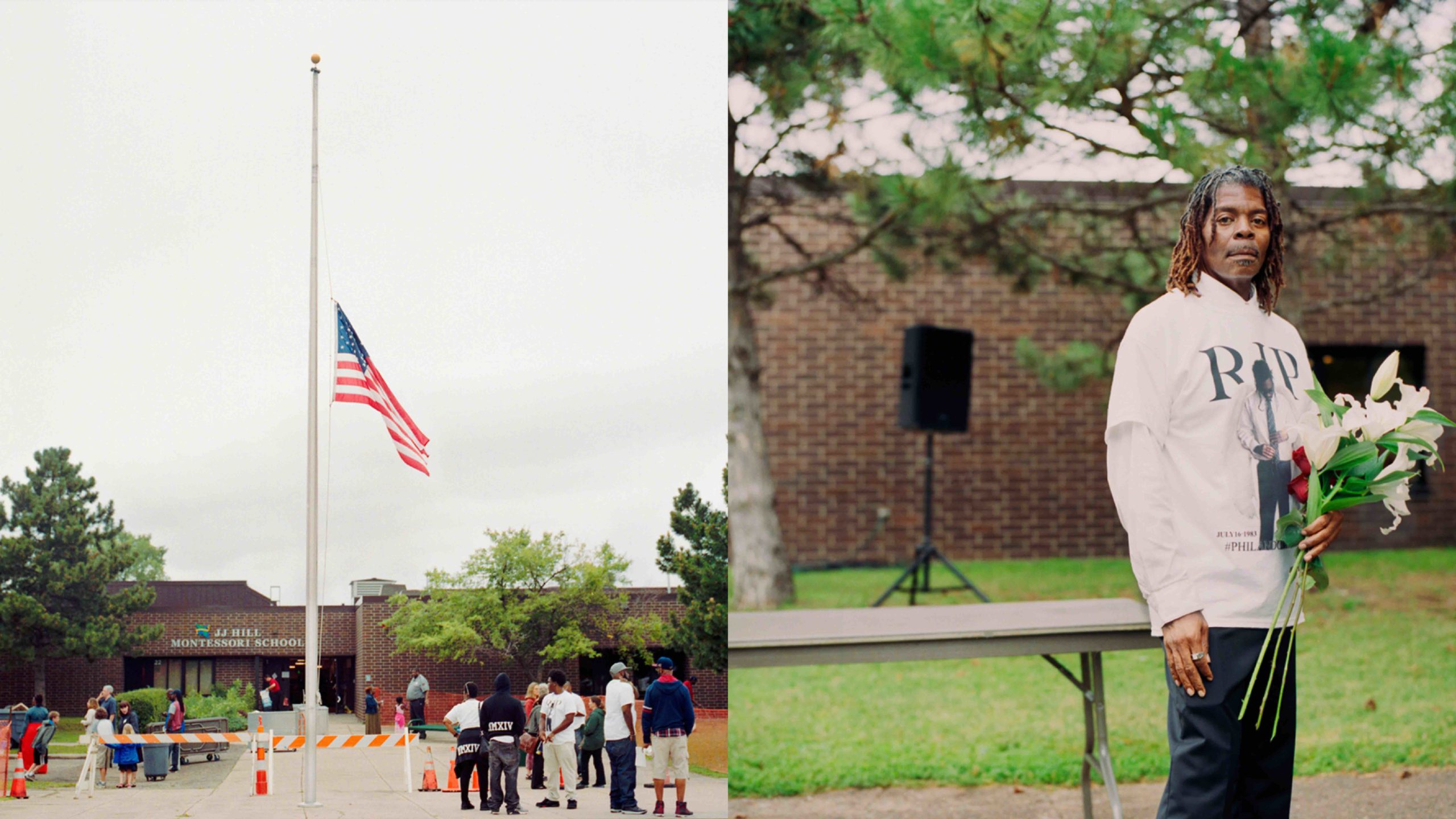Andrea Ellen Reed: Rising Sound
August 1 – September 27, 2020 | Art League Gallery
Reception & Artist Talk
Friday, September 4, 2020 | 5:00–8:00 p.m.
Please join us for a free, public reception for Rising Sound. A remote artist talk by Andrea Ellen Reed will be livestreamed into the gallery beginning at 6:30 p.m.
A limited amount of tickets are available through eventbrite. If you cannot attend in person, check back here for details on how to watch from home.
Online Panel Discussion
Date, time and panelists TBD
This free, public discussion will address issues of racial injustice and systemic racism with local artists and community leaders. Please check back here for additional details.
Rising Sound is a show of work that examines the lives of Black Americans living in a racially negligent society. Through photography, video, first-person audio interviews, and soundscapes, Andrea explores the aftermath of multiple deaths of Black men by the hands of the police in Minneapolis- St. Paul, MN, and Baltimore, MD. Andrea began creating this work in 2015 and unfortunately, its message still resonates today.
Rising Sound is comprised of two bodies of work: Unsighted and The Streets Are Talkin’. Unsighted examines the slow, steady deterioration of a soul bombarded with violent images and language all orchestrated to subvert black people. The Unsighted Project will consist of a collection of reactive video portraits of people of all races as they consumed edited media similar to that in Unsighted. Through a dedicated website and in-person recordings, I plan to gather hundreds of user-generated videos. The videos would be compiled into a large scale video installation that would be projected on stories high city buildings. The videos will be juxtaposed in a way that creates conversation among the subjects about how they react to racist culture. With the Unsighted Project, I intend to expand the dialogue about the black experience in America through a multiracial and cross-cultural video installation that will challenge the viewer to further to confront issues of racism against the black community.
The Streets Are Talkin’ is a multi-sensory project comprised of audio interviews and portraits of subjects Andrea approach’s on the streets of racially charged events like the aftermath of the police shooting deaths of unarmed Black men, Jamar Clark and Philando Castile, in the Twin Cities. This project focuses on a community at a confluence of race and injustice as explored through photography and sound. Her subjects for this project include activists, protest participants, family members, and friends of the deceased, concerned mothers of Black boys, community leaders, and bystanders. To encompass a broader range of perspectives, Andrea began photographing select subjects in spaces of their choosing- homes, parks, etc. In this work, she explores the psychology of portraiture and the power it has to communicate something larger about the person and their existence in society. She directs the subject’s gaze to be free of perfunctory smiles, challenging the viewer to acknowledge the subject’s unvarnished truth. In contrast, Andrea uses the absence of the face or direct gaze to illustrate stillness and loss. In the audio component of The Streets Are Talkin’, each participant communicates their vulnerability, fear, strength, and hope in their own words, thereby reclaiming ownership of their narrative.
Andrea Ellen Reed is a Black American female photographic artist living in the Midwest. Her work confronts the protracted struggles of black American life. As a black American artist, Andrea works to redefine traditional representations of blackness to dismantle structures that perpetuate racial discrimination. She began exploring these themes while obtaining my MFA in photography from the Academy of Art University in 2003. Over the past 17 years, Andrea continues to work in still photography and film to debunk the stereotypical myths about the Black American community. She lives and works in Minneapolis, MN- a city with a surplus of racial disparities- and her current work is influenced by racially charged events in local and national black communities.


